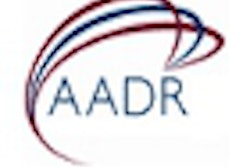
Despite opposition from the Missouri Dental Association (MDA), the Missouri Dental Board has become the first dental board in the U.S. to endorse a proposal for midlevel providers.
The proposal, submitted to the board by the Greater Springfield Dental Society, calls for the creation of licensed dental therapists and advanced practice dental hygienists, both of whom would be allowed to perform surgical and irreversible procedures, including some extractions and restorations. The state dental board voted May 27 to endorse the idea, according to Brian Barnett, executive director of the dental board.
The recommendation will be forwarded to the state Legislature, but state lawmakers have adjourned for the year so no action can be taken until the Legislature reconvenes next year. It is expected that a bill creating dental therapists and advanced practice dental hygienists will then be introduced.
“Dental associations exist to advocate for dentists; dental boards exist to protect the public.”
— Brian Barnett, executive director,
Missouri Dental Board
The fact that the proposal comes from a state dental board may provide the measure with greater traction than has been the case with similar proposals in other states. It also highlights disparate attitudes within the dental profession regarding workforce models.
"Dental associations exist to advocate for dentists," he told DrBicuspid.com. "Dental boards exist to protect the public."
MDA President Mark Zust, DDS, said his group opposes the creation of midlevel providers as outlined in the new proposal because it focuses too much on restorative dentistry and not enough on prevention.
"We believe any new dental workers would be most effective by addressing the root of oral health problems: working to encourage regular preventive care and providing basic preventive services to those who need it most," he wrote in an email to DrBicuspid.com. "We cannot simply drill and fill our way out of the access-to-care problem. At the same time, we also want to ensure any new workforce model protects the safety of the patient."
Access to dental care is a multifaceted issue, he added. "Adding a new provider to the dental team is not a cure-all for solving the access problem, but rather needs to be part of a larger, more comprehensive approach that also places heavier focus on prevention efforts," Dr. Zust noted. "The dental association has their views, and the dental board does not necessarily always agree with them on the best course of action."
The MDA supports the development of a community dental health coordinator and an oral preventive assistant to provide care in underserved communities, he added.
The ADA and most state dental associations have adamantly opposed the concept of midlevel providers, and have fought legislation that would expand the scope of duties of hygienists and set up new categories of midlevel providers who would be allowed to do extractions and restorations.



















